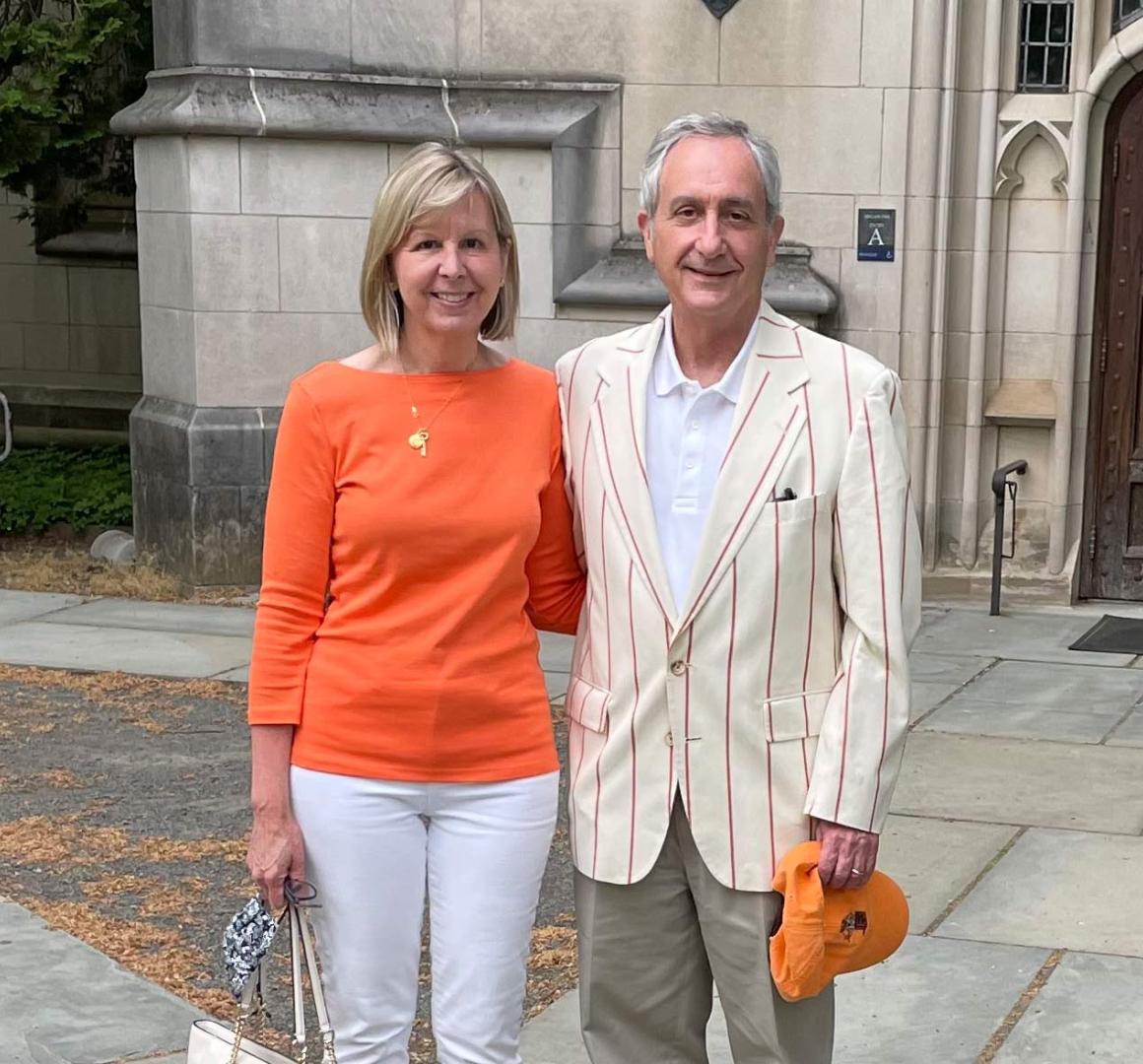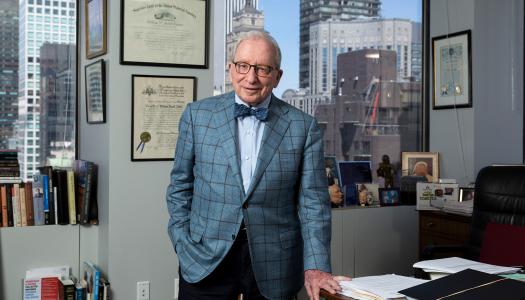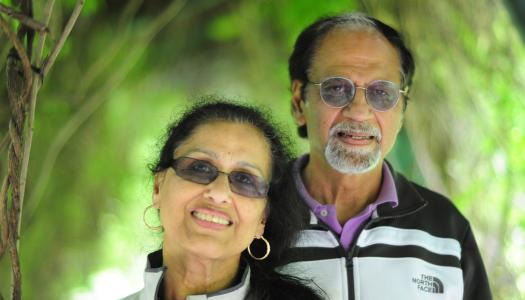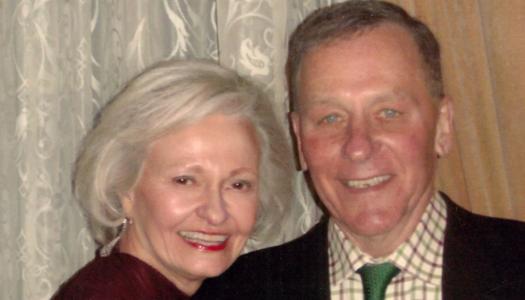Skip Rankin ’72 aids University’s mission with an Annual Giving legacy gift

As a Philadelphia high school senior, Clyde “Skip” Rankin III ’72 faced a difficult moment. He had received the mayor’s scholarship — “basically a free ride” to attend the University of Pennsylvania.
But Rankin wanted to go to Princeton. “I had to go down and tell the mayor myself that I was rejecting his scholarship, which was not so easy,” Rankin said.
Today Rankin remains more than convinced that he made the right decision. The one-time scholarship student has given back to the University through numerous volunteer posts for his class and the Alumni Association. He recently endorsed his decision again by making an Annual Giving Legacy gift in honor of his upcoming 50th Reunion.
“To me, it’s a great way to secure a long-term gift,” Rankin said. He also was attracted to the program for the tax benefits, using appreciated stock without incurring a capital gain in the year of the gift. He is deferring his distributions for a number of years to let them grow. “It’s just an excellent way of giving some thought to a gift that will be used for decades to come,” he said of the AG Legacy program.
Into the Future, Respecting the Past
“I have complete confidence in the University adhering to its mission, which to me is, really the education of young minds,” Rankin said of making his AG Legacy gift. “I can’t think of any institution that has Princeton’s focus on an undergraduate education and training young leaders for the challenges of the world with a broad-based education.”
Rankin’s math scores suggested engineering might be his major, but the future attorney was interested in international matters and gravitated to what is now the Princeton School of Public and International Affairs. His French language prowess had earned him a trip to Paris in high school, and he kept up his French at Princeton, befriending the legendary professor André Maman and returning to France to conduct senior thesis interviews on the precursor to the European Union. He also spent hours debating as a member of the Whig-Cliosophic Society. After the devastating fire that ravaged Whig Hall in 1970, he worked to preserve the building’s history with architects for the renovation.
Whig-Clio proved excellent training for law school. Debates at that time focused on co-education — Princeton fully opened its doors to women in 1969 — and on the Vietnam War. “We had pretty intense debates over the U.S. involvement,” Rankin said. “It was a period of political activism, but for most part, it was conducted in a civil atmosphere.” Rankin remains on the Whig-Clio board.
He sampled participation in the Triangle Club and after Princeton enjoyed experimenting with an amateur comedy club that presented plays. “Being able to speak on stage is also a good training for lawyers,” he said. He didn’t have any major roles, except as cast in a fanciful, reworked version of Romeo and Juliet. “I played the role of Romeo — it got a lot of laughs because of the dialogue.”
“Qui n’avance pas, recule” or Who Does Not Move Forward, Recedes
Rankin’s French expertise led him to Coudert Brothers, a New York-based law firm with a strong international outlook that operated from 1853 to 2006. He served as Coudert’s ninth chairman before joining Baker McKenzie, where today he is a member of the firm’s North America Transactional Practice Group based in the New York office, and is chair of the North America Projects Practice.
He also specializes in renewable energy projects. Before he was named partner, his spent a weekend of his own time on a possible financing deal involving a Danish company’s foray into wind power. The success of the venture led to Danish wind turbines in California and an expertise in a field that is still growing. Now, in addition to advising clients in the U.S. and abroad, he lectures frequently on wind and solar energy, including joining a 2020 Earth Week panel for the Princeton Student Climate Initiative.
Throughout his professional career, Rankin has assisted in projects to keep Princeton moving forward. For the Class of ’72’s 25th Reunion, he helped spearhead a teaching initiative that has financially supported courses for various departments. One example was an oratory class within the Department of English — a class Rankin felt essential as an undergraduate in preparing him for his future profession.
He also played an instrumental role in Princeton’s response to September 11, 2001, with the creation of a scholarship program for the John Jay College of Criminal Justice. A quarter of the $1 million Princeton set aside for programs went to Justice Scholarships, intended to honor the memory of the more than 100 John Jay students and alumni who died in the World Trade Center attacks. Rankin, vice chair of the Alumni Council at the time, was a representative of Princeton to announce the gift.
Rankin was in midtown Manhattan on that fateful day. He was in a meeting when an assistant first broke the news of a plane hitting the World Trade Center, but it did not initially sink in as serious. Then the assistant came back again and couldn’t speak through tears.
“I went back in the meeting and said, ‘This meeting is over.’ Everybody was reaching for their phones. But then the phones were out because the trade tower had this major antenna on the top, you know. The rest, of course, is history. But it’s been seared in my memory, that whole episode, and of course, the rest of the day. I spent the day trying to make sure people got home. Manhattan became an island, literally, the bridges were closed at tunnels because nobody knew what else was going on. We made a buddy system, and people opened up their apartments to folks and I called to the Princeton Club and reserved all the extra rooms that they had.”
Circling Back for the 50th
Now Rankin and his classmates are preparing for their quinquagenary and many of the planners for the 25th Reunion are back on board for another go-round — including Rankin in the class president role. His Annual Giving Legacy gift is part of his effort to celebrate.
He’s hoping classmates will be able to gather around the Class of 1972 medallion outside of McCosh Hall and toast their years together. And, he said, while he knows Princeton needs to grow, he hopes the intimacy of friendship that he experienced as an undergraduate and the academic excellence the University offers continues to flourish in the future.


